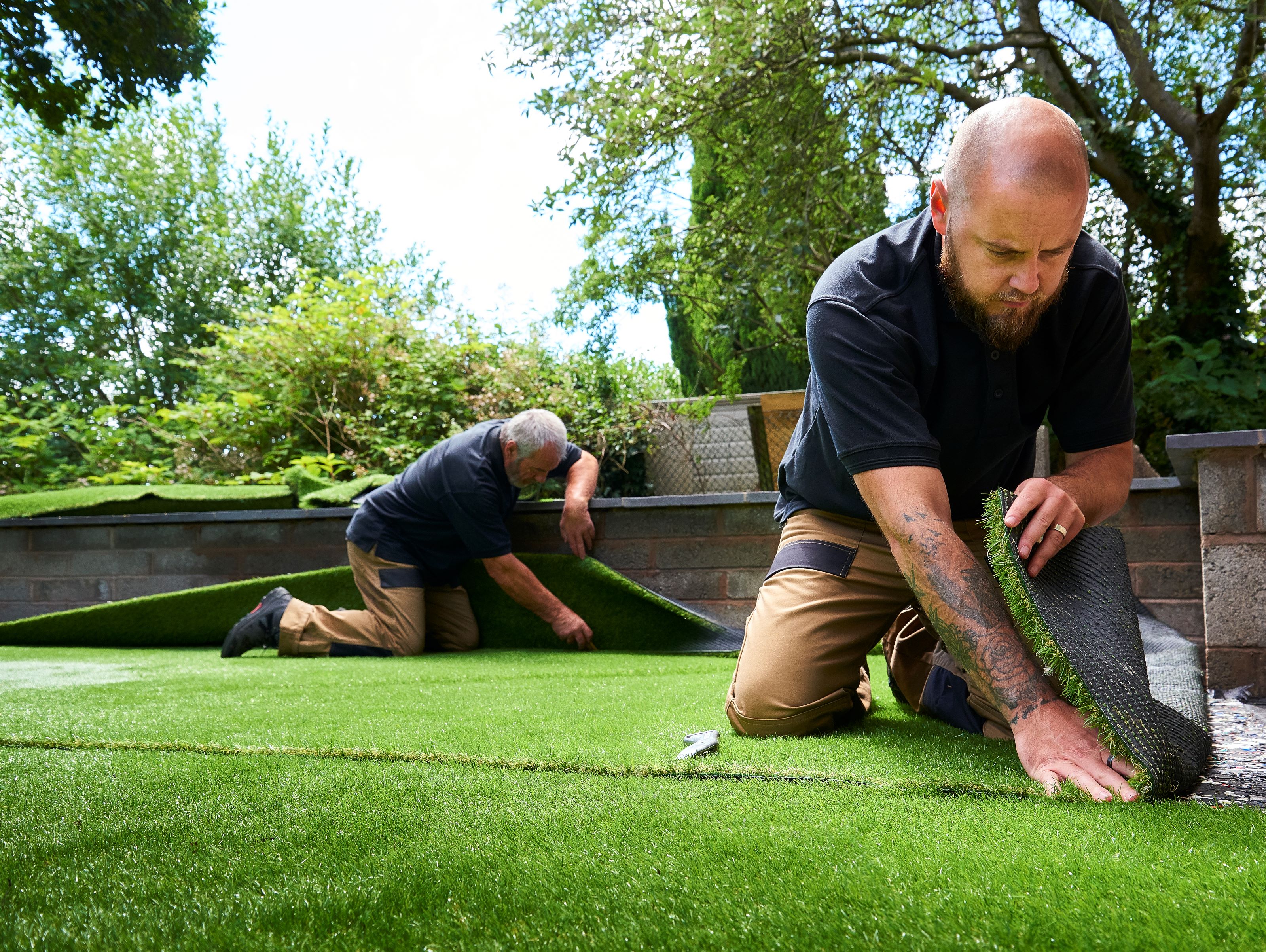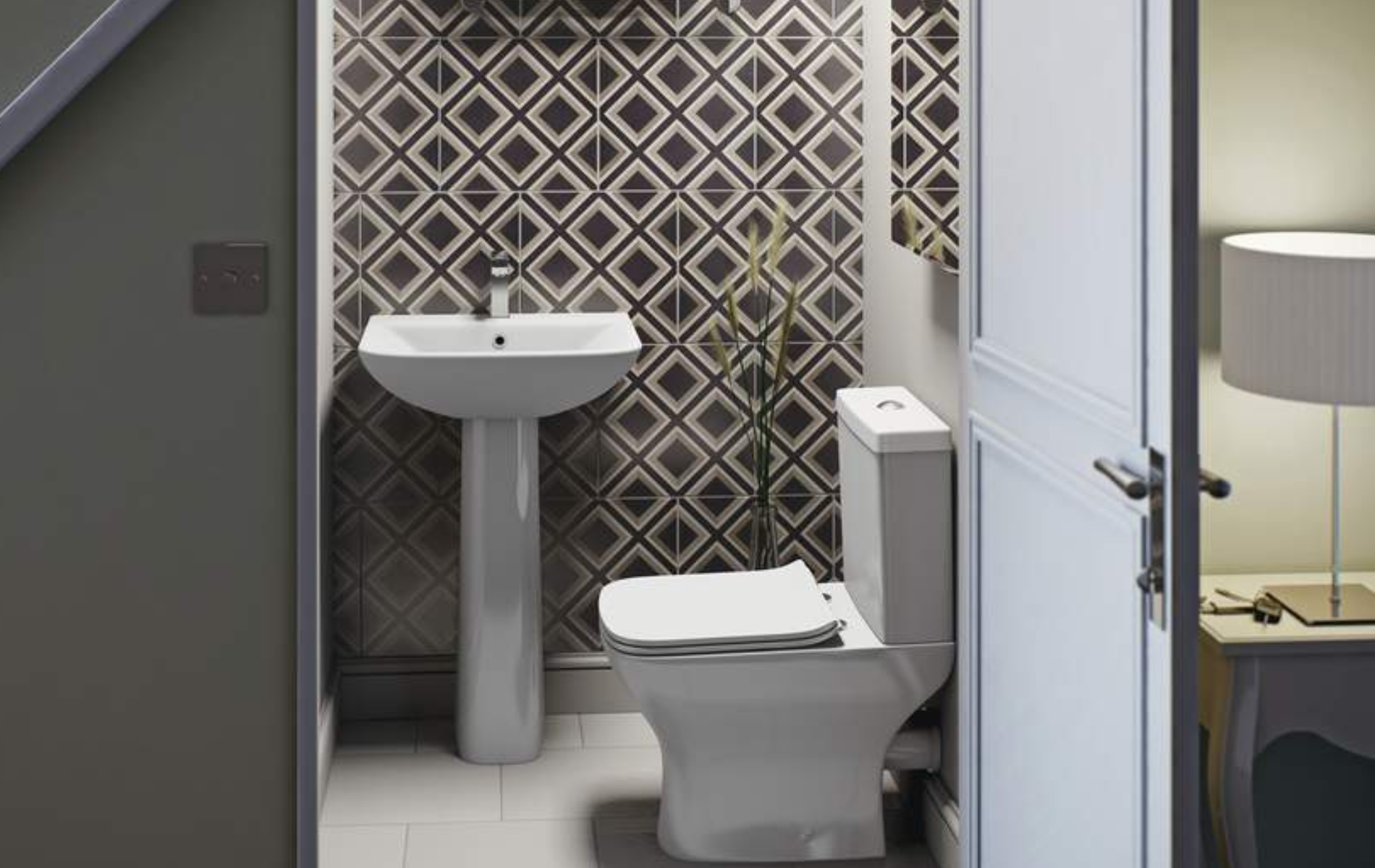
Bring your dream home to life with expert advice, how to guides and design inspiration. Sign up for our newsletter and get two free tickets to a Homebuilding & Renovating Show near you.
You are now subscribed
Your newsletter sign-up was successful
It may suit your garden and your needs, but what is the cost of artificial grass?
Artificial turf is a surface of synthetic fibres made to look like natural grass and has been in widespread use since the 1960s.
It is low-maintenance, hardy, pet-friendly, and cost-effective, and homeowners who place importance on garden design enjoy its year-round tidy appearance.
What is the cost of artificial grass?
The cost of artificial grass itself varies from £14.95 to £28.95 per square metre, but if you include the cost of laying it the price varies from around £30 per metre square if laying yourself, to around £110 a metre square if professional laid.
Sam Baylis at the Kent-based Artificial Lawn Company, says the cost varies massively due to the large disparity of quality across the current market.
He said: “Our range starts from £14.95 per square metre at our 25mm Easy Lawn, although our best seller is actually our 45mm Supreme Lawn at £28.95.
“Our grasses are at the top end of the quality and price scale but we do know that they will stand the test of time and some of the grasses we installed and supplied 20 years ago still look fantastic.”
Bring your dream home to life with expert advice, how to guides and design inspiration. Sign up for our newsletter and get two free tickets to a Homebuilding & Renovating Show near you.
Typically for a professional installation it works out £65-£80 a square metre including the grass, groundworks, waste disposal, and VAT. Again this will vary depending on access to the areas (side gate, access through the house, lots of steps etc), wastage from the shape of the area, and drainage.
The average cost of using a specialist installer is £600 per day. You can save this cost by installing the grass yourself. However, if you do you should expect the project to take a couple of days to complete. You might want to rent some tools to make the process simpler and relieve some of the labour.
You may also need jointing tape (£1), jointing adhesive (£6.50), geotextile weed membrane (£1 per square metre), kiln dried sand bag (£5.50 per 20kg bag) and fixing pins (£24 for 100 pins).
What are the different types of artificial grass?
There are thousands of artificial grasses now in the UK market. Most of which are very cheap, thin plastic which will go flat quickly after little use and have visible footprints, deterioration and lines in them.
Cheaper grass is fine for just a quick fix or temporary event but schools, gardens, and sport require higher quality grasses. These typically have a shaped yarn and stronger denser plastics often referred to as D-Tex. Some grasses are designed to be more realistic and others are produced with durability and resilience in mind.
It’s wise to speak with an expert about your requirements so they can recommend the best grass for you. Companies like B&Q tradepoint have a large variety of different artificial grasses to choose from with different price tags depending on size and quality.
Artificial grass is made from polypropylene, polyethylene, and nylon (for stronger and golf grasses). Most residential artificial grass is made from a combination of polypropylene and polyethylene plastic. Golf and some of the sports grasses are also made with nylon.
The thickness needed is purely dependent on what you want to use it for. For a soft cushioned feel a 38-45mm grass is the best. For intensive use and sports, a grass under 40mm is best. Sam says: “For the most realistic grass a 40-45mm tends to trick the neighbours.”
Cheapest way to lay artificial grass?
Sam says it is very easy to do as a DIY project if you educate yourself about how to lay artificial grass. The hard work is the turf/soil removal and the subbase, once this is done as long as you take your time the cutting in and fixing the grass is not so bad.
He said: “The joins can be tricky but there are lots of handy tips and guides to make this easier. Of course you may not achieve as perfect a finish as a professional installation, but it does save a large proportion of the costs and can be relatively simple for smaller gardens without joins.”
Sam is based in Coventry and has been a news reporter for nearly 20 years. His work has featured in the Mirror, The Sun, MailOnline, the Independent, and news outlets throughout the world. As a copywriter, he has written for clients as diverse as Saint-Gobain, Michelin, Halfords Autocentre, Great British Heating, and Irwin Industrial Tools. During the pandemic, he converted a van into a mini-camper and is currently planning to convert his shed into an office and Star Wars shrine.

